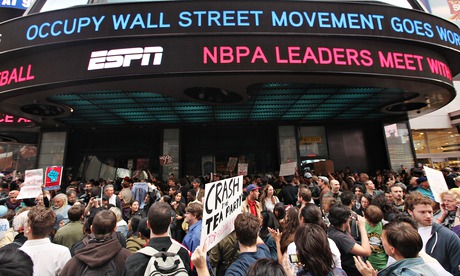guardian | Back in the 90s, I used to get into arguments with Russian friends
about capitalism. This was a time when most young eastern European
intellectuals were avidly embracing everything associated with that
particular economic system, even as the proletarian masses of their
countries remained deeply suspicious. Whenever I'd remark on some
criminal excess of the oligarchs and crooked politicians who were
privatising their countries into their own pockets, they would simply
shrug.
"If you look at America, there were all sorts of scams like
that back in the 19th century with railroads and the like," I remember
one cheerful, bespectacled Russian twentysomething explaining to me. "We
are still in the savage stage. It always takes a generation or two for
capitalism to civilise itself."
"And you actually think capitalism will do that all by itself?"
"Look
at history! In America you had your robber barons, then – 50 years
later – the New Deal. In Europe, you had the social welfare state … "
"But,
Sergei," I protested (I forget his actual name), "that didn't happen
because capitalists just decided to be nice. That happened because they
were all afraid of you."
He seemed touched by my naivety.
At
that time, there was a series of assumptions everybody had to accept in
order even to be allowed to enter serious public debate. They were
presented like a series of self-evident equations. "The market" was
equivalent to capitalism. Capitalism meant exorbitant wealth at the top,
but it also meant rapid technological progress and economic growth.
Growth meant increased prosperity and the rise of a middle class. The
rise of a prosperous middle class, in turn, would always ultimately
equal stable democratic governance. A generation later, we have learned
that not one of these assumptions can any longer be assumed to be
correct.
The real importance of Thomas Piketty's blockbuster, Capital in the 21st Century, is that it demonstrates, in excruciating detail (and this remains true despite some predictable petty squabbling) that, in the case of at least one core equation, the numbers simply don't add up.
Capitalism does not contain an inherent tendency to civilise itself.
Left to its own devices, it can be expected to create rates of return on
investment so much higher than overall rates of economic growth that
the only possible result will be to transfer more and more wealth into
the hands of a hereditary elite of investors, to the comparative
impoverishment of everybody else.



0 comments:
Post a Comment